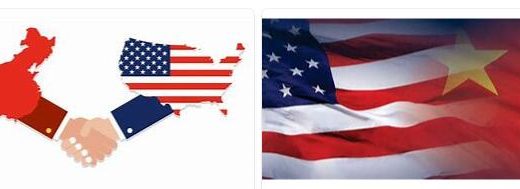China, India, South Africa, and Brazil Part III
UN reform is the third important issue that separates (see HHD 2005) . Before and during the failed UN summit in September 2005, it was inconceivable for the four to work together to change the composition of the Security Council. China is Asia’s only permanent member, and it will continue to be so. Europe is most overrepresented, so Europeans have little interest in change. The UN Reform Panel proposed that the Security Council be composed of an equal number of representatives from each of the four continents of Africa, Asia (and Oceania), Europe and the Americas. Based on the population, it is reasonable that Africa, America and Europe have the same number of representatives. They have about the same population: Africa 891, America 884 and Europe 729 million. But Asia has 3.9 billion, well over half of the world’s total population.
What primarily prevented the Asian countries from gathering to demand increased Asian representation in the Security Council and provide space for more permanent members was the conflict between China and Japan. In China, a particularly strong opinion was raised in 2005 against Japan’s unsatisfactory excuses for its crimes during World War II and against Japan’s position on border disputes at sea. What the mobilization was really about was to prevent Japan – as the United States wanted – from becoming a permanent member of the Security Council.
On the issue of UN reform, China was a brake. India and Brazil instead collaborated with Japan and Germany on a proposal that these four (G4 countries) become permanent members of the Security Council. The dispute over the UN summit thus did not help to unite China, India, Brazil and South Africa. China is reaping the benefits of being the only permanent Asian member of the Security Council. Anything that could prevent Japan from becoming a permanent member is in China’s interest, and China could therefore not actively support India’s candidacy.
There is also a more fundamental distinction. Neither South Africa nor Brazil has any prospect of becoming global powers. They may become regional powers, but in global politics they are at the height middle powers. India is also not yet anything more than a global middle power. Only if the Indians manage to achieve a similar economic growth as the Chinese, will India have the opportunity to take a place among the global superpowers sometime in the middle or second half of the century. Among the four regional powers, China is in a class of its own.
7: What is China doing?
Can a more lasting alliance develop between China, India, Brazil and South Africa in world politics, and can it possibly constitute a counterweight to the United States? Will China see itself benefiting from such an alliance, and will the others join in and support China? And how will the United States, Russia, Japan and the EU countries react?
A number of factors mean that China will be careful to challenge the United States by building alliances across oceans and continents. The first reason is that the two main goals of the Chinese communist leaders are to maintain their power in China and ensure continued rapid economic growth. To achieve these goals, they do not want any arms race with the United States and Japan. They want free access for Chinese products to the US, European and Japanese markets. They want access to high technology and investment.
And they are fully aware of how dependent they are on the stability of the world’s finances. China has built up very large foreign exchange reserves, primarily in dollars, and has invested huge sums in US securities. It has created a relationship of interdependence between China and the United States that makes a confrontation cost them both dearly. China and the United States also have a strong common interest in securing their access to oil and gas on the world market. And China, a country located in Asia according to topschoolsintheusa.com, does not have the means to acquire energy during a military conflict with the United States and Japan. Therefore, it is likely that China will seek to develop a responsible, system-building global policy.
The trade policy cooperation between China, India, South Africa and Brazil will continue after all sun marks. They want to increase their economic trade and make development policy statements. But they are unlikely to develop any firm and general alliance in world politics. Of the four, only China is seriously involved in the power game between the great powers the United States, Japan, Germany, Russia, Great Britain and France, and China will prioritize its relationship with the other global powers over the relationship with South Africa and Brazil. It may be different with India. China and India are neighboring states, and India can play a role in China’s efforts to strengthen its regional influence in Asia at the expense of Japan. But in such a context, South Africa and Brazil will have little significance.
The most important question about global power relations does not concern the relationship between the regional powers in Asia, Africa and South America. It concerns China’s place in world politics: Can China’s growth continue? How long can China’s growth continue without the United States and Japan pursuing a confrontational policy? What conditions must be met for China to be able to continue to grow and become an ever stronger global power without this leading to confrontation with the USA, Japan and the EU countries? Will India, Brazil and South Africa support China on the road to the pinnacle of power? Or will they ally with those who try to limit China’s power? The future will show.













